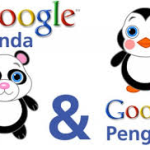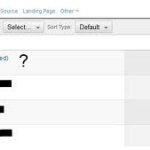Ask anyone within the SEO space and they’ll be happy to verify from experience that 2013 was one of the most tumultuous year’s for SEO. Throughout each season of the year, Google’s SEO algorithms had one aim: To force content providers to provide clear and considerable value to searchers when they wanted to be rewarded by having a high ranking in search results. Nothing brand new there, at least theoretically. What changed significantly, however, is the internet search engine giant’s ability to position sites using indicators that forced providers to adhere to the company’s objectives regarding value without having to be easy to change. In 2013, Google managed to get even harder to trick the system. Here’s how:
Ongoing Panda and Penguin Updates
After rolling out the Panda update in 2011 in order to penalize sites which offered little worth to searchers but plenty of onscreen real property to advertisers. Penguin adopted in 2012, focusing on questionable link building strategies that artificially increasing a site’s obvious influence. In time since their preliminary releases, Google continues to perfect these algorithm adjustments, including at minimum three known Panda modifications and two Penguin improvements in 2013. Considerably, some of these types of changes were meant to help legitimate websites that unintentionally dropped victim to Panda recover a number of their lost rankings. Google continues scrutinizing link building strategies, including penalizing methods in 2013 which originally fell beyond Penguin.
The Not Revealed Key phrases in Google Analytics
Traditionally, SEOs could evaluate Google Keyword information to determine how searchers were coming to their pages as well as spot optimization possibilities. In 2013, Google took the majority of that data away within the name of safeguarding searchers’ privacy, replacing what had been probably the most useful information supplied in its collection of analytics tools.
While some information continues to be available through Google’s Webmaster Tools, SEOs are still largely at a nighttime relative to the actual keyword information they would have at hand within 2013. The two choices open to SEOs appeared to be, make use associated with keyword information obtainable elsewhere (for instance, through Bing) or choose to pay attention in providing unique content that could hopefully incorporate numerous organic keywords.
Google’s Author Rank
It’s no real surprise that an author’s title and reputation may contribute an atmosphere of expertise towards the content she creates. Unfortunately (for searchers), till 2013, there was no solid method to calculate the impact of the incredibly important social signal inside a search algorithm. Just like so many additional challenges, Google found a means around that as well as Author Rank was created.
By verifying code snippets on the content page against information within the creator’s Google+ web page, Google is now in a position to reasonably assure searchers that the piece content was compiled by a known as well as respected name. Additionally, Google is now able to assign a worth, known as Author Rank, to the apparent influence attached to that name. The upshot is straightforward: SEOs whose properties will offer content written through well-regarded creators remain to win big with this arena.
Hummingbird Revised
In September 2013, Google announced it had essentially changed its old formula. The updated method for parsing research requests and working results was called Hummingbird, and it promised to permit more natural search queries in addition to provide more exact results, serving the precise page a user will probably need within another website. For instance, searchers could right now literally ask Search engines a question rather than typing a chain of keywords. The algorithm allegedly also understands inquiries more contextually – for instance, providing answers highly relevant to Vancouver rather than Toronto if you be searching through within Vancouver. While this is really a new algorithm, it still incorporates changes associated with quality that showed up under previous improvements. Hummingbird makes optimizing content material for locality and in the page level vitally important. You still require high quality content though.
What to Anticipate in 2014
Obviously, optimizing content with regard to mobile and local search is going to be important in 2014, however the real story continues to be content quality. Since Google is actually forcing content providers to consider strategically instead associated with tactically regarding their own content, it makes it crucial for SEOs to set aside a second to think strategically about Google like a search provider. The end goal for Google is to provide the most trusted search results available on the Internet. The easiest way to maintain that trust is merely to deliver top quality results to individuals. It will continually be important for SEOs to maintain tactical methods to optimization that may be exploited for fast gains, but the greatest long-term strategic method of succeeding with Search engines in 2014 and beyond is to deliver well organized, easily parsed, and valuable content for their target audiences. If that content is adequate to encourage interpersonal sharing, thus circumventing the requirement for discovery on the search engines to begin with, well, more power to you.





